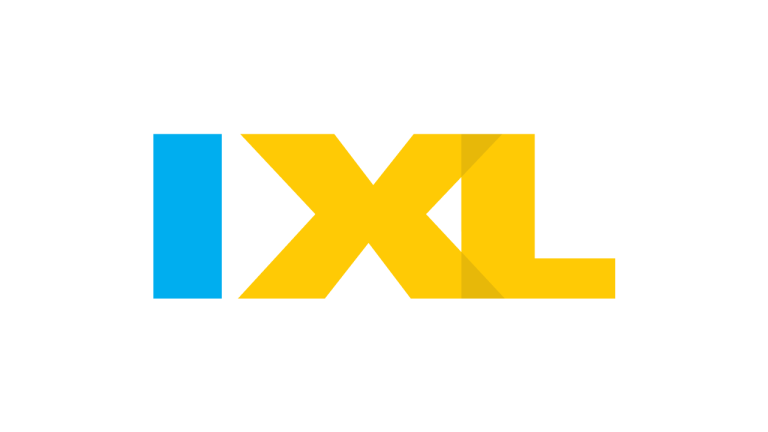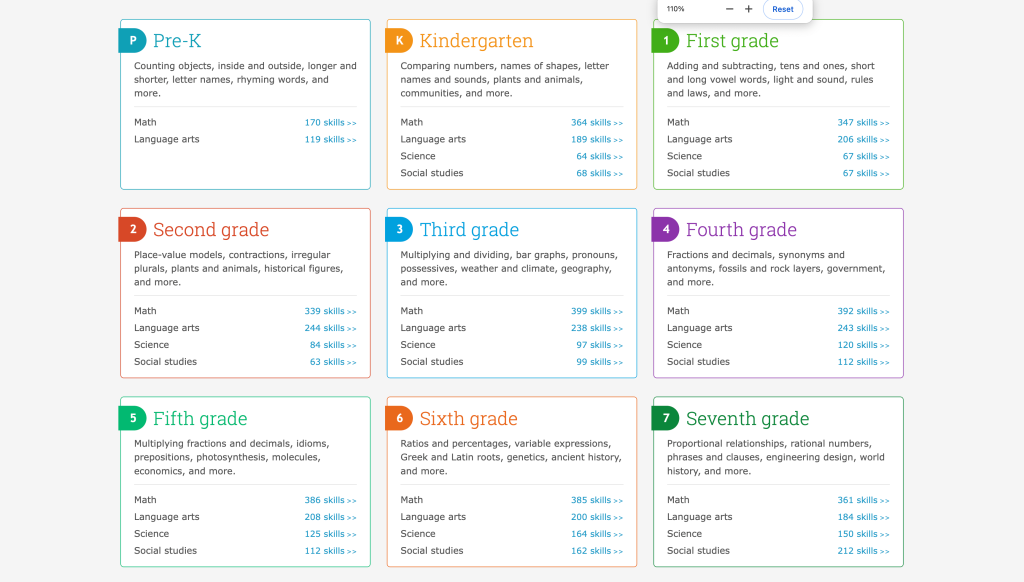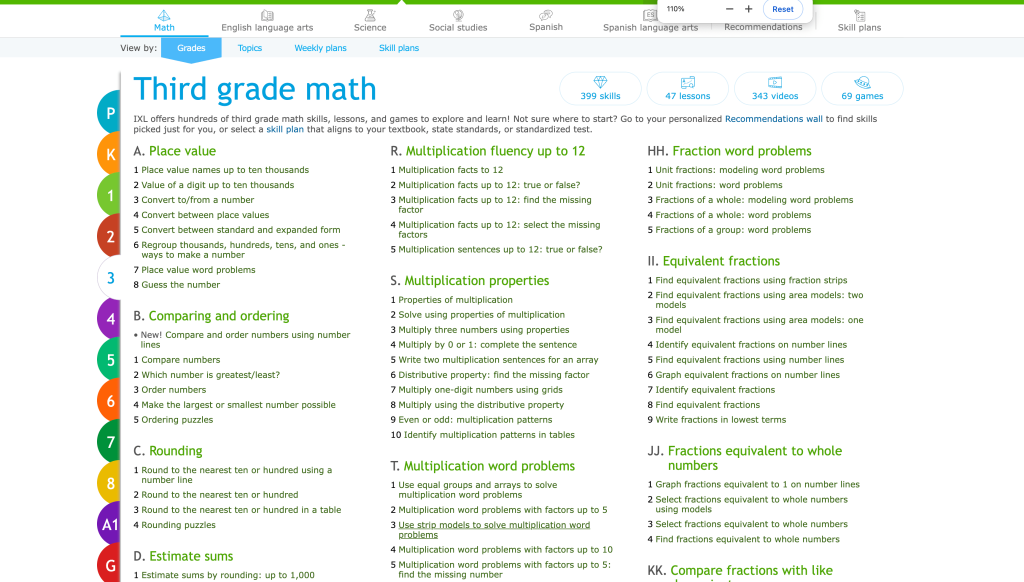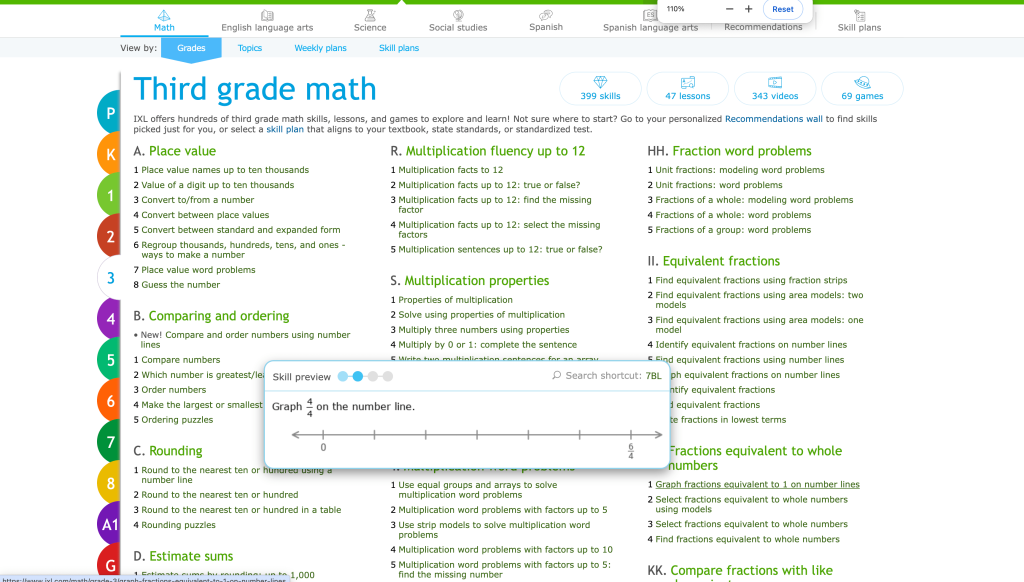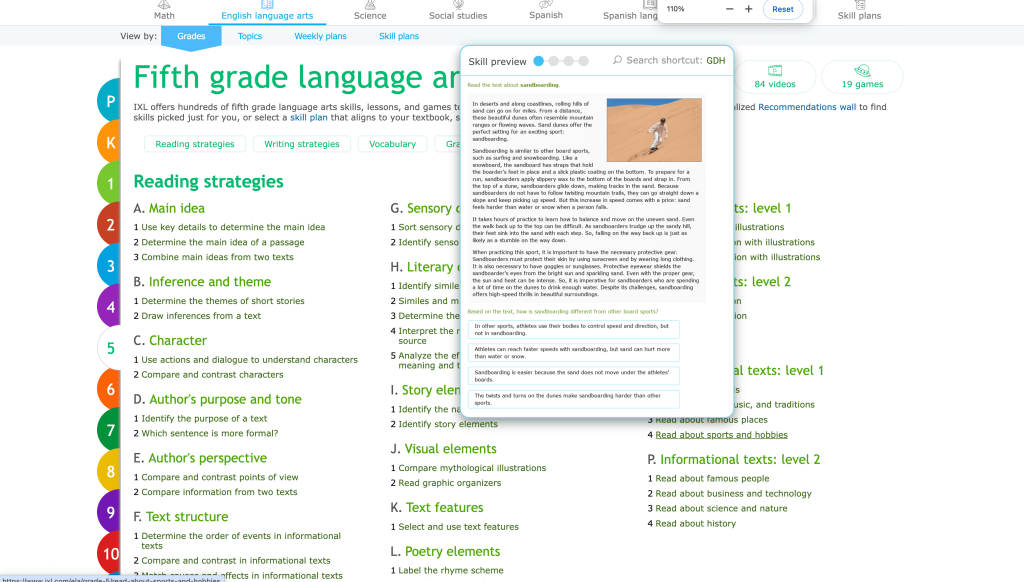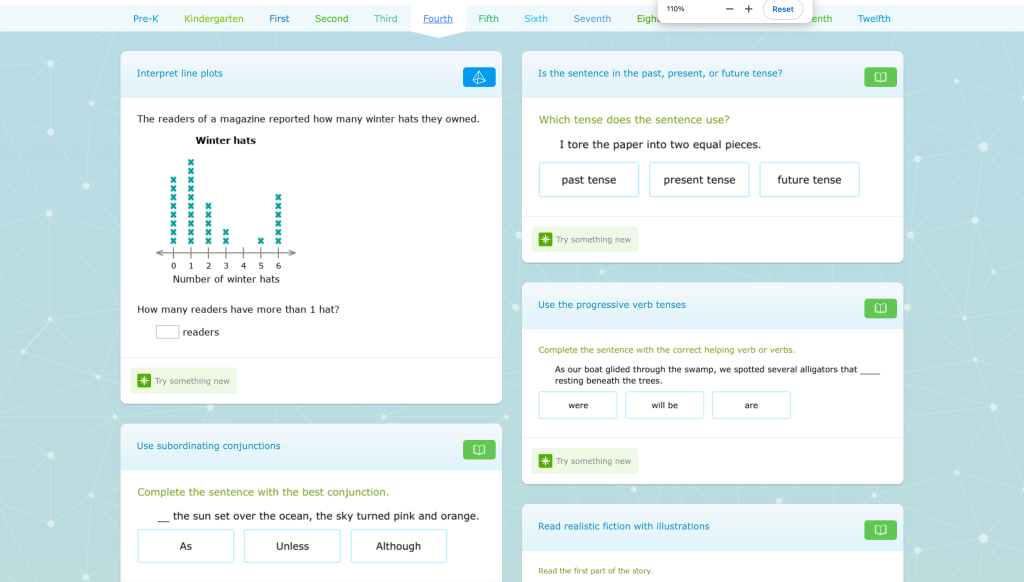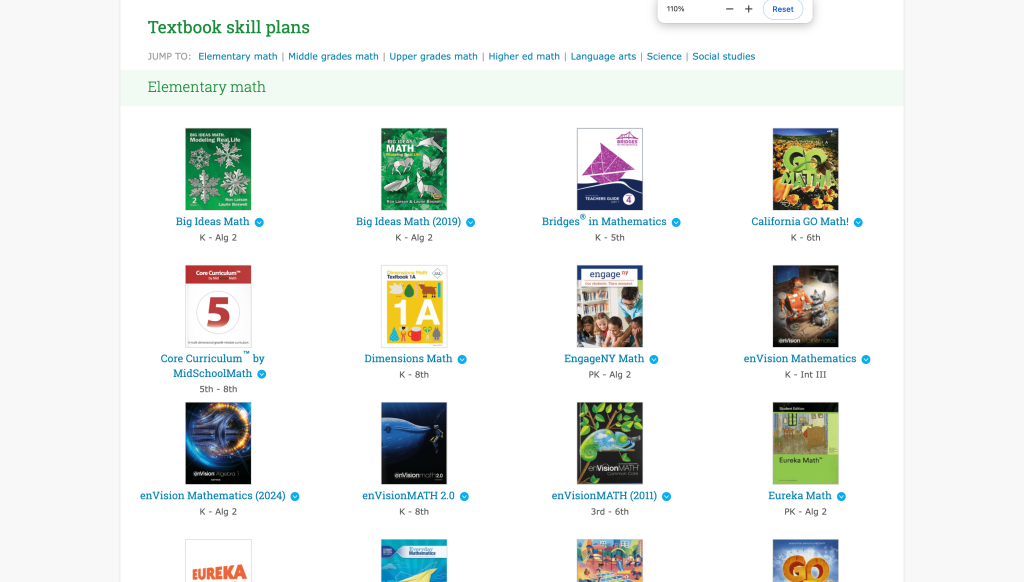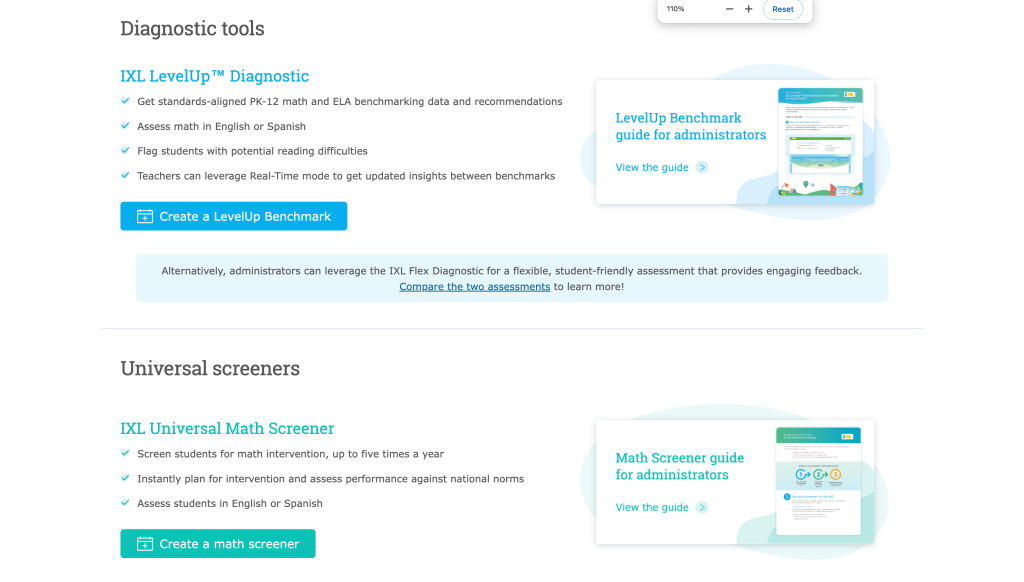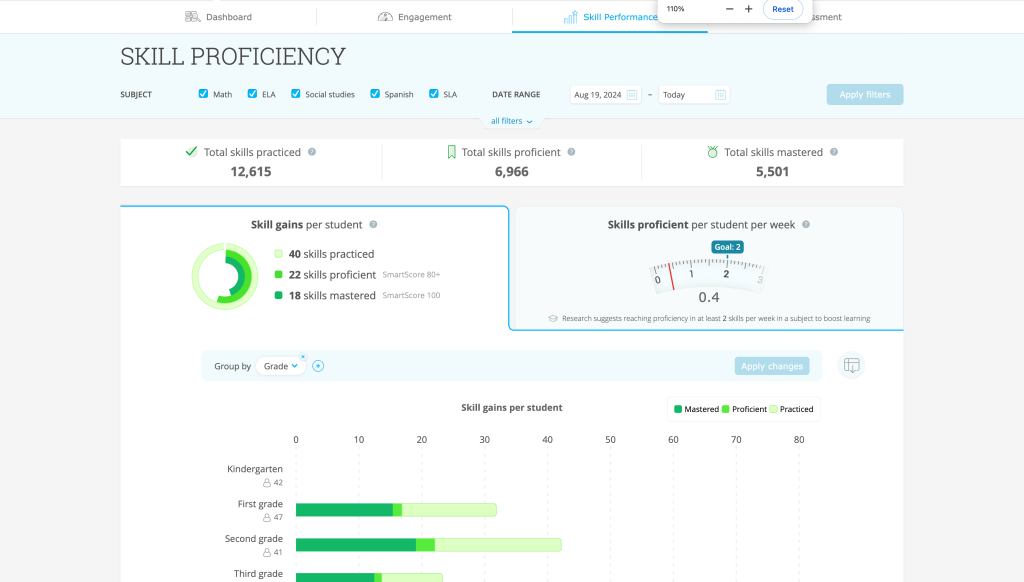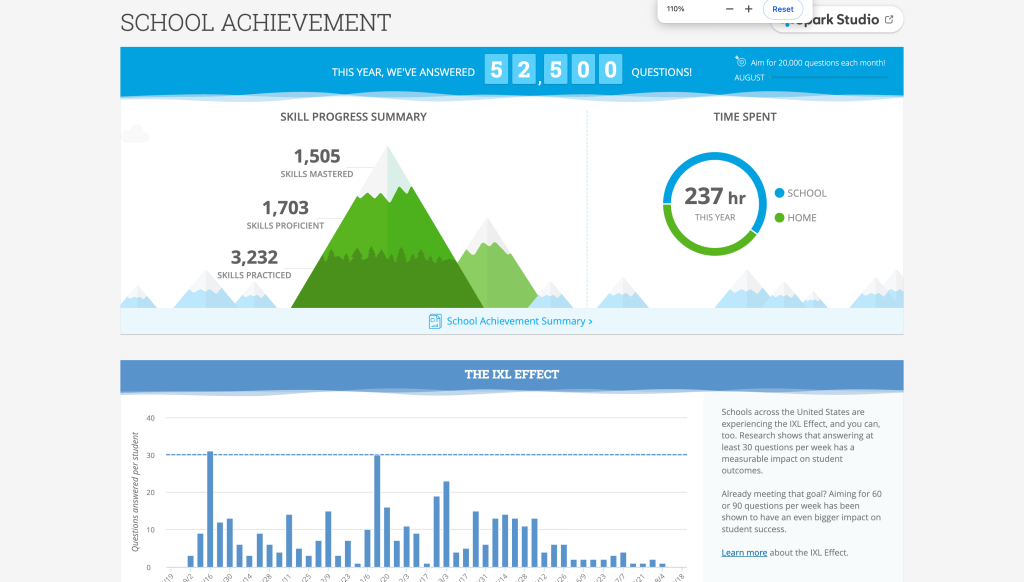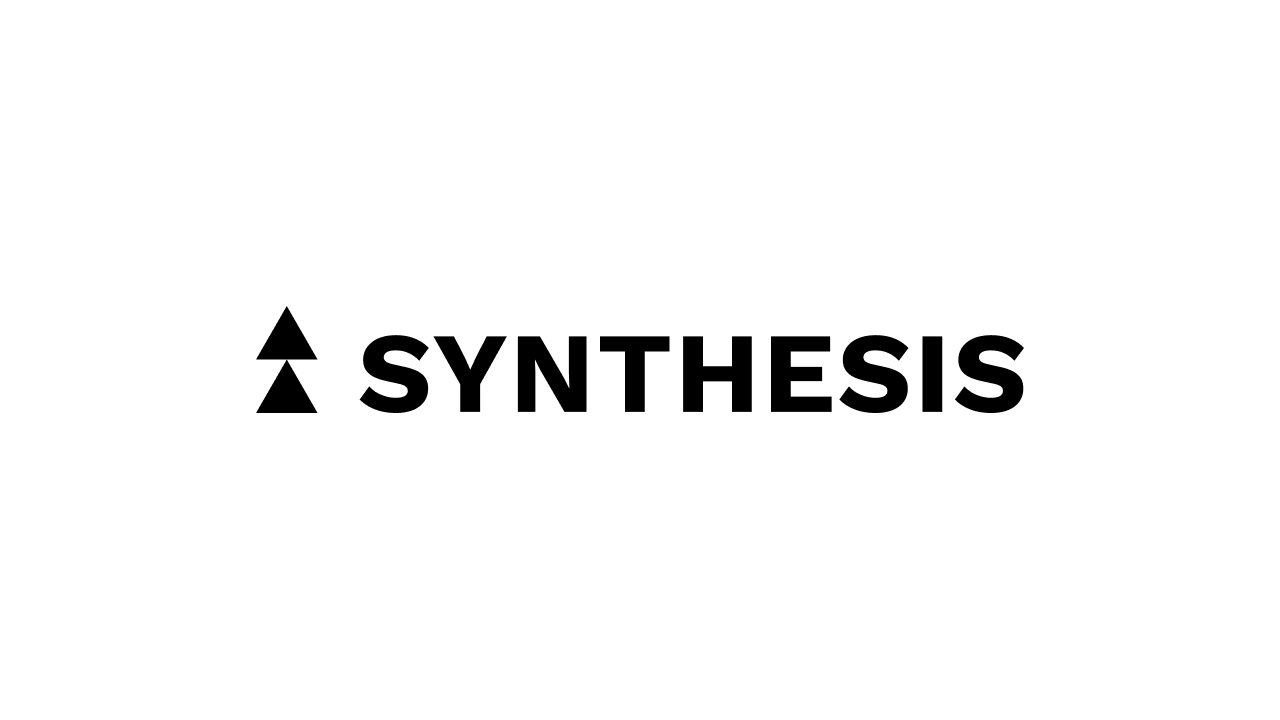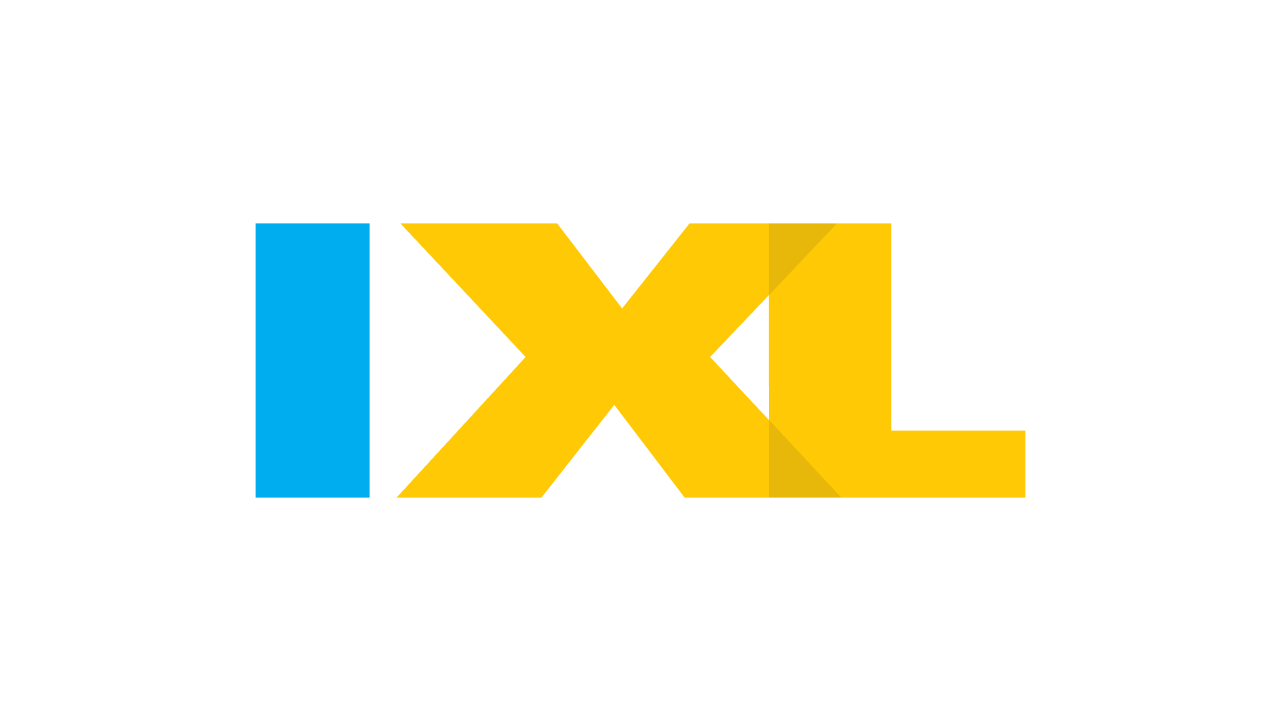Overview
IXL is a robust digital learning platform primarily focused on math and language arts, with additional offerings in science, social studies, and Spanish. While the name “IXL” plays on the idea of students “excelling,” the platform delivers far more than just skills practice. It combines adaptive learning algorithms, real-time analytics, and an expansive standards-aligned skill library for students PreK–12. Though both teacher-facing and student-facing, its most powerful features shine when used by schools or districts with intentional rollout and training.
Curricular Integration
IXL’s strength in curricular alignment is exceptional—particularly in mathematics, where it offers full crosswalks to most major textbooks and state standards, including robust support for California standards. Language arts alignment is slightly less targeted (given the broader nature of ELA curricula), but still strong. Across subject areas, IXL continues expanding its alignment tools, making it easier for teachers to find and assign content that supports existing curriculum plans. Teachers can also browse by skill, topic, weekly plan, or textbook, making it highly flexible for instructional planning.
User Experience
IXL strikes a thoughtful balance between functionality and simplicity. For students, the platform is intuitive once they are fluent readers (typically 2nd grade and up), with audio support available for early learners. It avoids the trap of being over-gamified—rewards like badges are subtle, keeping the academic focus front and center.
For teachers, however, the breadth of features can feel overwhelming without training. It’s not that the interface is poorly designed—it’s simply that robust. Tools like diagnostics, quizzes, leaderboards, and assessments require a learning curve and ideally should be supported by administrators, department leads, or learning specialists. Live PD and full-day IXL workshops have proven extremely helpful in unlocking the platform’s full potential.
Technology and Systems Integration
IXL integrates well with many major systems, including Clever, ClassLink, and more recently Schoology. Auto-rostering through ClassLink with QR codes is especially helpful for younger students. Though the initial IT setup (particularly with varied license tiers by grade level) can be a bit complex, it’s generally a “set-it-and-forget-it” situation once configured.
School and district-level deployments will benefit most from centralized tech support and rostering. From a systems perspective, IXL’s integrations are as seamless as can be for a platform this powerful.
Pricing and Access
Pricing is highly variable depending on subjects and number of students. At scale, IXL is affordable—math and language arts combined typically cost around $18 per student per year for mid-sized schools. Add-on subjects (like science or Spanish) generally cost an extra $4–$8 per student, depending on the robustness of each subject area.
For a school of ~200 students using math and ELA, expect to pay around $4,000 per year, with solid ROI—especially if the tool replaces other assessment systems or supplements classroom instruction effectively.
Spanish, in particular, offers strong value, especially in elementary programs with diverse learner levels. Science and social studies are improving steadily but may feel light in content depending on grade and curriculum.
Professional Development and Training
PD isn’t optional with IXL—it’s essential. Teachers and admins must understand how to manage diagnostics, interpret analytics, and assign/recommend content to get full value. Live workshops are excellent; online modules are also available but less hands-on. Schools should invest time and budget into professional learning, particularly for math leads, admins, and anyone overseeing diagnostics.
In short: if you’re not trained, you won’t use IXL to its full potential.
Privacy, Data and Ethics
IXL is a FERPA- and COPPA-compliant platform with no history of data breaches or misuse. It’s widely trusted and safe for student use. The AI usage is minimal and unobtrusive—mainly limited to background adaptation algorithms and the new Spark Studio, a teacher-facing set of generative AI tools that currently do not interact with student data.
There are no significant privacy concerns or ethical red flags at this time.
Strengths and Limitations
- Strengths
- Unmatched in real-time analytics and adaptive learning in math.
- Deep curricular alignment (especially math textbooks and standards).
- Excellent diagnostics when used regularly.
- Strong for independent student practice with minimal need for extrinsic motivation.
- Seamless integration with rostering tools.
- Increasingly valuable for Spanish instruction.
- Limitations
- Non-core subjects (like science and social studies) are still building depth.
- Lacks strong direct instruction—mostly practice-based (a potential area for growth).
- Can feel overwhelming for teachers without proper training.
- Student experience for very young learners (PreK–K) can be clunky without support.
Final Verdict
IXL is an A+ platform for schools serious about using data to drive instruction—especially in mathematics. It’s ideal for district-wide use with proper admin and PD support and works well for in-class practice, independent work, and assessment replacement.
While it’s not a full AI platform, it incorporates AI in helpful, subtle ways. Its growing Spark Studio might evolve into a stronger teacher assistant over time. If your school is focused on student growth in math and language arts, and you’re ready to invest in training, IXL is one of the most effective tools on the market.
